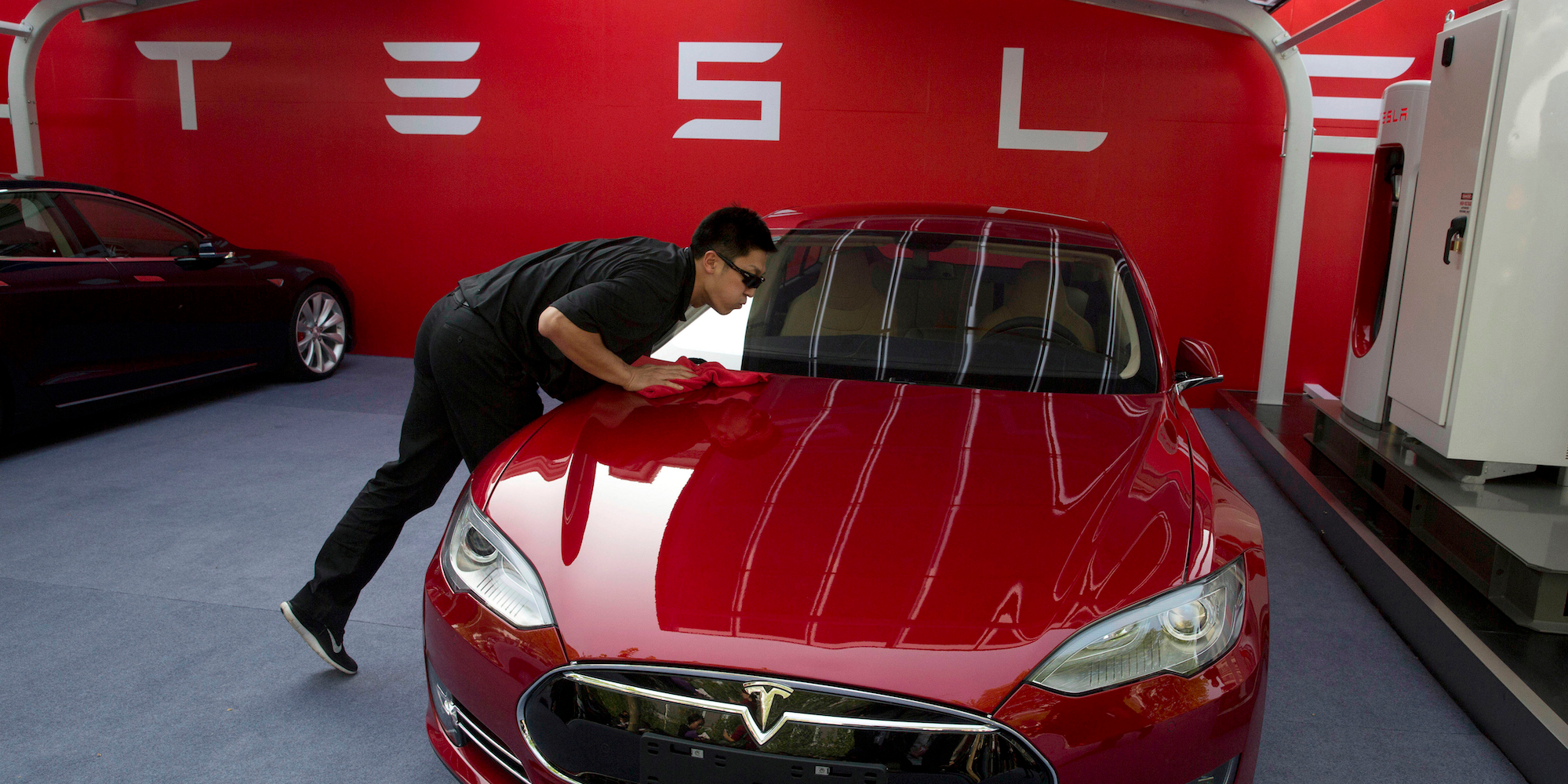- Tesla has surged 28% year-to-date through Tuesday’s close.
- Three analysts have raised target prices for Tesla this week. One is a new Wall Street high for the automaker.
- Here’s what three analysts said about Tesla, and why they’re raising price targets.
- Watch Tesla trade live on Markets Insider.
Tesla has started 2020 on an upswing, and now Wall Street analysts are anticipating that the stock will rocket even higher.
So far, the Elon Musk-led automaker has gained 28% this year through Tuesday’s close, where it ended the day at a fresh all time high of $537.92 per share.
Those gains have been driven by strong vehicle delivery numbers for 2019, which exceeded the low end of the automaker’s guidance. In addition, the stock has surged on increased optimism around the new Gigafactory in China as it ramps up.
So far, Tesla’s surging stock price has broken at least two records – it’s now the highest-valued US automaker of all time, and has a market value worth more than Ford and GM combined. In addition, if the stock price continues to climb and reaches $100 billion, it will put CEO Elon Musk closer than ever to a $346 million payday per his compensation package with Tesla.
Wall Street analysts have taken note of Tesla's strong performance, since it rebounded in October with a surprise return to profitability for the third quarter. In the last few weeks, there have been a slew of price-target updates to keep up with the stock as it continues to climb.
This week alone, three analysts have updated their price targets for Tesla, now estimating that it could surge as much as 14% this year. Here's what the analysts said about Tesla, and why they've updated their price targets:
1. Deutsche Bank: "Firing on all cylinders"

Price Target: $455 from $290
Rating: reaffirmed hold
"Tesla truly seems to be firing on all cylinders," wrote Emmanuel Rosner of Deutsche Bank in a Tuesday note. He noted China production, a large step-up in regulatory credit revenue, the start of the production of the Model Y, and the building of a Europe factory as positives for Tesla.
"But with the stock hovering around all-time highs, we worry investor sentiment has gotten bullish too fast, ignoring some of the nearer-term execution risks. This is especially the case in China where we note the market is difficult to gauge in the near-term due to a recent slump in NEV sales," he wrote.
He continued: "4Q deliveries also benefitted from the expiration of EV incentives in several markets (e.g., US and the Netherlands); therefore, 1Q could see a sequential moderation in demand in some key geographies."
2. Jefferies: "It would be wrong to exit"

Price Target: $600 from $400
Rating: Buy
"We think it would be wrong to exit Tesla on valuation given that: 1) it is the only OEM engaged in a positive-sum game in EVs amid rising market acceptance; 2) the auto business should turn profitable this year (stand-alone ex credits); and 3) balance sheet de-risking makes old and new growth opportunities viable, from battery tech to stationary and autonomy," wrote Philippe Houchois of Jefferies in a Tuesday note.
He continued: "Our updated PT starts to reflect Tesla's ability to pursue additional growth, notably in storage/generation and selling batteries to third-party OEMs. We estimate these markets will be worth c.$90bn and $235bn by 2025 and 2030, respectively, potentially adding $0.9 and $2.2bn to EBIT (10% share/ margin). We do not at this stage assign separate value to robotaxis."
3. Oppenheimer: "A must-own stock"

Price Target: $612 from $385, a new Wall Street high for Tesla
Rating: Buy
"While TSLA has stumbled through growing pains, we believe the company has reached critical scale sufficient to support sustainable positive FCF," wrote analyst Colin Rusch of Oppenheimer in a Monday note.
Tesla is tracking about three years ahead of competition on its powertrain technology, power and data architecture, and operating system, Rusch said. "Given the resolution of manufacturing bottlenecks and demonstration of strong consumer demand, we believe TSLA is becoming a must-own stock and could benefit from inclusion in additional indexes," he wrote.
He continued: "We believe the company's risk tolerance, ability to implement learnings from past errors, and larger ambition than peers are beginning to pose an existential threat to transportation companies that are unable or unwilling to innovate at a faster pace."

